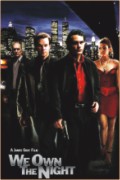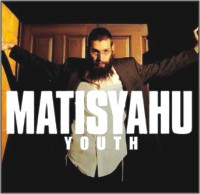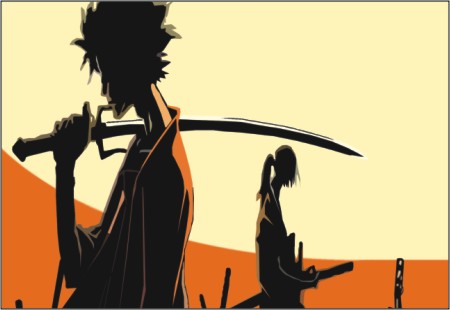Movies
Sometimes (like most times) it's great to sit back with a movie that has things blowing up in regular intervals. You don't need a deep plot, great facial expressions, answers to world hunger. All you need is things to go boom in interesting manners.

By Gokhra
 Resident Evil made a big splash as a game. Then it became a movie where a virus outbreak starts turning people in zombies and a hot actress starts blowing them to kingdom come. The sequel had some more of the action and less of the story. The third sequel in this series 'Resident Evil: Extinction' continues with the similar 'wham', 'bam' and 'boom' sequences with a lot of 'slash', 'swipe' and 'aargh' thrown in.
Resident Evil made a big splash as a game. Then it became a movie where a virus outbreak starts turning people in zombies and a hot actress starts blowing them to kingdom come. The sequel had some more of the action and less of the story. The third sequel in this series 'Resident Evil: Extinction' continues with the similar 'wham', 'bam' and 'boom' sequences with a lot of 'slash', 'swipe' and 'aargh' thrown in.
The story pulls despite expecting otherwise. The Earth has somehow managed to be over run by zombies and the U.S. looks like a desert.
Our heroine Alice (Milla Jovovich) is further genetically modified and goes about her business on a mean motorcycle. She is on the run from her evil spooky creators, the Umbrella Corporation.
The world is in such a sorry apocalyptic state that a girl named Ashanti is one of the last humans left alive on the planet. Others are somehow made up of genetic and robotic enhancements.

Alice along with her former buddy in arms, Carlos (Oded Fehr) and a group of survivors roam the desert while Umbrella's mad scientist Dr. Isaacs (Iain Glen) continues his experimenting in hope of reversing or controlling the zombie plague created by his company.
'Extinction' has a more polished look than the previous flicks with surprisingly coherent actions that holds together from scene to scene. Although the dialogue is at best silly and at worst laughable. But hey, you don't watch these movies to brush up on language etiquette. It's not classy, it's not even particularly witty but heck it's a lot of fun.
In ways it actually turned out better than the predecessors. The directors tried to put in the human elemetn spending a lot of time with the convoy of survivors and their lives.
And at the end of the movie it leaves you feeling there is another sequel coming up. I would watch it.

 Of course, if you want a deeply involving story about crime and action, 'We Own the Night” might just do the trick.
Of course, if you want a deeply involving story about crime and action, 'We Own the Night” might just do the trick.
Set in New York somewhere in the late 80's, this flick deals with the lives of two brothers Bobby (Joaquin Phoenix) and Joseph (Mark Wahlberg). Bobby dressed up like a stud with a diamond stud in the ear completes the image of a slick 80's yuppie. He manages a throbbing nightclub built out of an old movie theater that has a bit of an ill repute with the local police force.
Bobby is a smooth character loved by his beautiful girlfriend played by Eva Mendes. The club is owned by a Russian named Marat Bujayev who is said to control the area's drug trade. His nephew uses the club as a front to peddle some serious drugs. Bobby is not involved in this but he doesn't also ask. He quietly runs the club and is smooth as previously stated.
Joseph on the other hand is Bobby's opposite turning out to be a decorated member of the police force. What you can see is that this turns out to be an odd couple movie.
He is assigned to crack open a narcotics case involving the drug ring operating out of the club.

Everything comes to a head as the club owner's nephew asks Bobby to join him in the drug trade. At the same time the police are cracking down on the operation. The cops ask Bobby to help them. Crossroads cannot get any further crossed.
There are plot holes. Bobby changes his name and no one (especially the bad guys) seem to know he is Joseph's brother. Is it that easy to hide ones identity?
But despite that it is still a good crime thriller with plenty of scenes where the protagonist is about to be unmasked leading you to a nail biting episode. Action is neat, realistic with fantastic original car chase scene placer in the middle.

By Reggie
 You may have not heard of him, but he ranks right up there with Sean Paul. Infact he was named one of the top reggae acts by Billboards in 2006 along with Sean Paul and went on to become nominated for the Grammy's for best album. His name is Matisyahu and while you may break a few teeth and embarrass yourself trying to pronounce his name, its worth it when you listen to his music!
You may have not heard of him, but he ranks right up there with Sean Paul. Infact he was named one of the top reggae acts by Billboards in 2006 along with Sean Paul and went on to become nominated for the Grammy's for best album. His name is Matisyahu and while you may break a few teeth and embarrass yourself trying to pronounce his name, its worth it when you listen to his music!
Matisyahu is the Hebrew stage name of John Paul Miller, a Pennsylvanian born artist whose music is influenced by Reggae, Judaism, Rock and Jazz. He sings in a voice which would have made Bob Marley proud and he sings about things which would have made a Jewish rabbi glow in delight. He is a deeply religious Jew who is famous for wearing traditional Jewish clothes on stage and not performing during Sabbath. All of his music is primarily about religion and the unique nature of the Jewish race. This unique approach to music has made him a controversial figure as he is criticized by a lot of people to be a staunch supporter of Zionism and consequently the Israeli acts in the west bank. However what they fail to see is the music of the man, which is amazing.
 He isn't a typical reggae artist- certainly not a reggae purist. His style is more of a blend of the awesome aspects of rock, some parts of R&B, beat boxing, rap and reggae. He complements his music style with guitars, trumpets or whatever may be convenient to the art. Although his approach to reggae is modern his voice and his lyrics seem to be from another bygone era- beautiful yet hauntingly ancient. There lies the awesomeness of the music.
He isn't a typical reggae artist- certainly not a reggae purist. His style is more of a blend of the awesome aspects of rock, some parts of R&B, beat boxing, rap and reggae. He complements his music style with guitars, trumpets or whatever may be convenient to the art. Although his approach to reggae is modern his voice and his lyrics seem to be from another bygone era- beautiful yet hauntingly ancient. There lies the awesomeness of the music.
His song, “Jerusalem” talks about what an important place Jerusalem is to the Jewish race and how “if he forgets it, then his right hand will forget what its supposed to do” He throws in words like, “it's not about the land or the sea Not the country but the dwelling of his majesty”. He talks about rebuilding temples, burning Babylon and the archaic imagery with a modern art creates a very compelling musical experience.
 Most of his songs are based on the theme of surviving a world where spirituality is slowly losing its roles. He is a man who seems to be leading the sole battle against materialism, consumerism and superficiality. In his song “King without a Crown” he goes on to say “you are a slave to yourself and you don't even know, you want to live a fast life and its bound to overflow....you are not God but you try to inflate your ego” This song is perhaps the closest to classical reggae and certainly a delight to hear. I suggest you start with this song if you want to listen to Mayisyahu.
Most of his songs are based on the theme of surviving a world where spirituality is slowly losing its roles. He is a man who seems to be leading the sole battle against materialism, consumerism and superficiality. In his song “King without a Crown” he goes on to say “you are a slave to yourself and you don't even know, you want to live a fast life and its bound to overflow....you are not God but you try to inflate your ego” This song is perhaps the closest to classical reggae and certainly a delight to hear. I suggest you start with this song if you want to listen to Mayisyahu.
While listening to Matisyahu, keep an open mind. He is deeply spiritual man and his songs reflect that. He is a Zionist but his songs are more of a message of peace and spirituality. And he spreads this message in the most unique way someone could- using rap, hip-hop, Rastafarianism, reggae, beat box, jazz and rock! If the sheer assortment doesn't get you interested in him, I don't know what will.


ByLe Chupacabra
Action / Adventure / Comedy
26 Episodes
Fuji TV
Ages 15+
 Fuu has been searching for the enigmatic “samurai who smells of sunflowers” for as far as she can remember. Ditzy and with a relentless propensity to fall in with the wrong people, she is about to have her fingers chopped off by the local thugs when fate intervenes in the form of a loud-mouthed, brusque ruffian named Mugen. Mugen agrees to save her in exchange for free food from the bistro Fuu is temporarily a waitress at. At the same time, the stoic Jin enters the eatery and the two polarised samurai are invariably drawn into battle…
Fuu has been searching for the enigmatic “samurai who smells of sunflowers” for as far as she can remember. Ditzy and with a relentless propensity to fall in with the wrong people, she is about to have her fingers chopped off by the local thugs when fate intervenes in the form of a loud-mouthed, brusque ruffian named Mugen. Mugen agrees to save her in exchange for free food from the bistro Fuu is temporarily a waitress at. At the same time, the stoic Jin enters the eatery and the two polarised samurai are invariably drawn into battle…
The thing about Samurai Champloo is that it's ridiculously difficult to write about it without name-checking director Shinichirou Watanabe's other opus: the peerless Cowboy Bebop. While there are stylistic similarities and definitely more than a few parallels, Champloo is less segue and more disparity.
The deeper nature of conflict that runs through Bebop is omnipresent, though more on an aesthetic, oftentimes basic, level. True to its name, Champloo presents itself with literally paradoxical styles that become the highlight of the entire plot. It also takes interesting portions of history from the island of Japan and despite the anachronisms it often invokes, there are a few revealing history lessons involved. While Champloo often seems to have no direction or substance besides a rather large MacGuffin regarding the “samurai who smells of sunflowers”, it's more an involving journey of people, discovery and dichotomy than a proper story. Like Bebop, there's more than meets the eye, albeit not as much.
 Even if you do pass off the plot as trite and insubstantial, there's no denying that Champloo is a stylish venture of the highest quality. The fight scenes are the most obvious highlights here; Mugen's overly baroque yet feral swordplay contrasts brilliantly with Jin's calculated tantivy. The choreography is of consistent excellence and each battle serves to be of meaningful allusion. Other than those particular examples, the series itself boasts a blinding lustre of panache that permeates into every aspect of its being.
Even if you do pass off the plot as trite and insubstantial, there's no denying that Champloo is a stylish venture of the highest quality. The fight scenes are the most obvious highlights here; Mugen's overly baroque yet feral swordplay contrasts brilliantly with Jin's calculated tantivy. The choreography is of consistent excellence and each battle serves to be of meaningful allusion. Other than those particular examples, the series itself boasts a blinding lustre of panache that permeates into every aspect of its being.
While the overarching expedition concentrates on those three, various supporting characters are introduced to show other facets of the trio's personalities that can't be expressed solitarily. While they're somewhat rigid as characters, Mugen, Jin and Fuu come off as relatively interesting individuals sharing various renditions of a common theme of escape and existentialism.
The artwork is luxuriously detailed with subtle touches and a fantastic use of colour and contrast. The animation is mercurial in its fluidity and the design sensibility is rather awe-inspiring at times. It's truly a work of art in all senses of the word.
What this series truly achieves acclaim for, and I wholeheartedly agree with others, is the music. An intoxicating mesh of equally discordant and mellifluous instrumental pieces with a fantastic sense of beat and rhythm creates an exotic soundscape that surpasses accolade. There are so many memorable pieces that I ardently recommend that fans try to get the official soundtracks - it's definitely music worth obsessing over.
Of course, no anime is without its flaws and Champloo suffers from the same malaise that affected Bebop: ennui in quite a few episodes. While the filler boasts a similar tongue-in-cheek sense of comic relief, the fact that these are not essential episodes is most definitely noticeable. The plot will also feel somewhat lacklustre to many viewers and of course, the characters will seem equally so.
While I think it's comparatively inferior overall to Bebop, Champloo finds its forte as an avant-garde piece of animation that's subtle in its connotations and brazen in its execution. A true journey in heart and soul, Samurai Champloo is quality entertainment.
